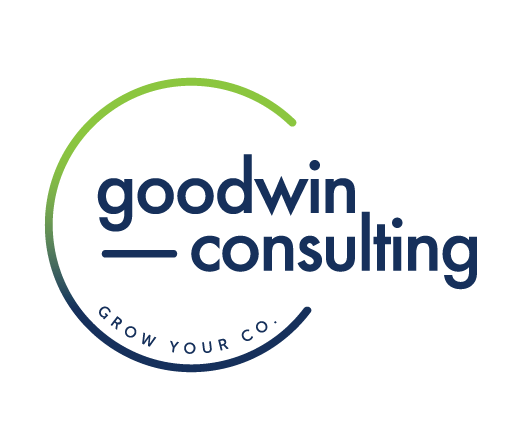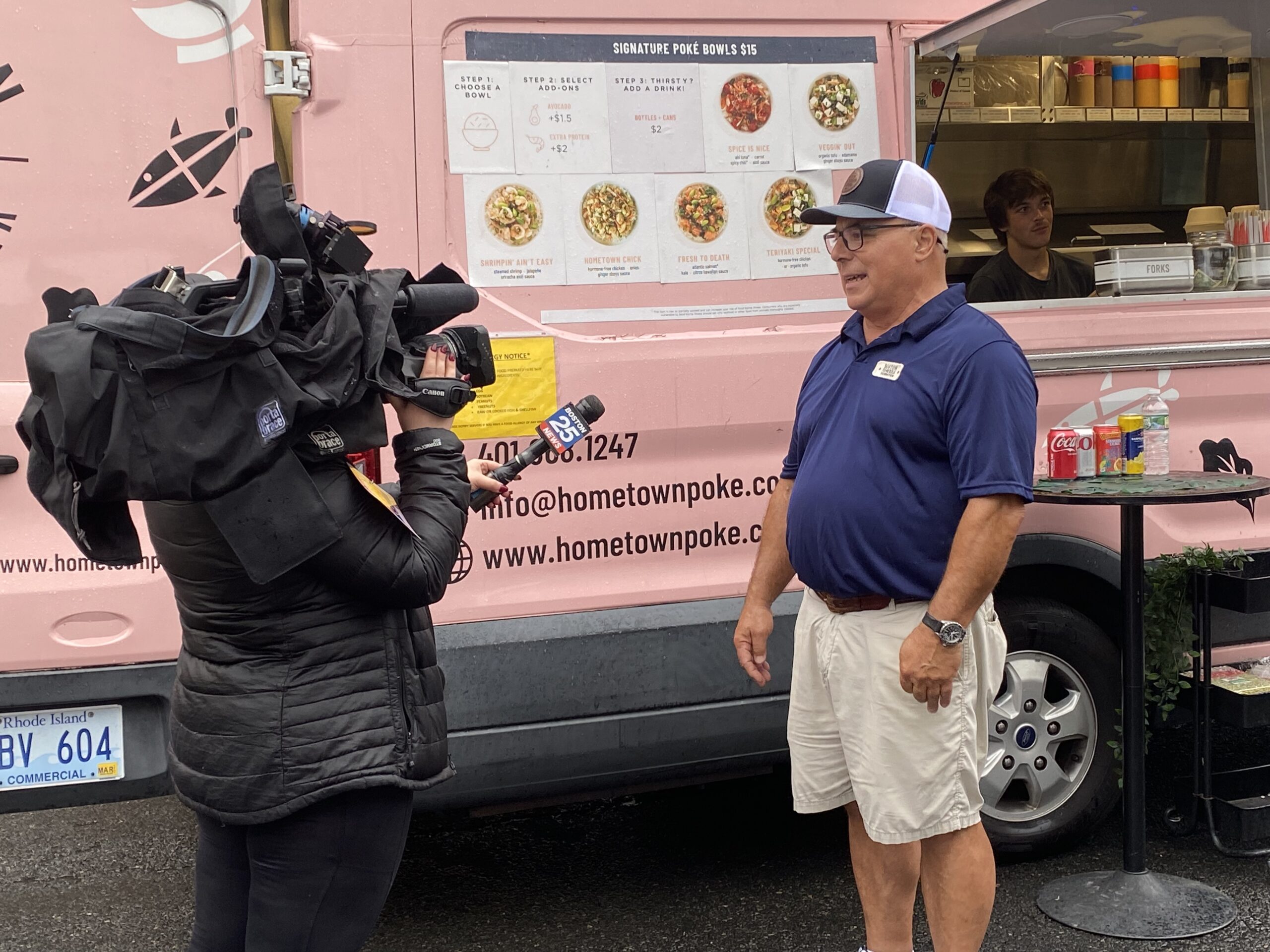CEOs and business owners often don’t think about media training until faced with a publicity opportunity, but that’s the wrong approach. Media training should be an ongoing part of your public relations process so that when an opportunity arises, you’re not merely willing but truly ready.
Goodwin Consulting’s media training gives our clients the confidence to handle anything an interviewer throws their way.
Media Training Prepares You for Even the Toughest Topics
One Goodwin Consulting client recently experienced the value of media training—particularly when it comes to speaking about complex or controversial topics.
We prepared a nonprofit healthcare client for a 15-minute interview with WBUR-FM centered on the topic of reproductive rights and abortion access for lower-income individuals in Southeastern Massachusetts and Cape & Islands.
Keep reading to see how media training prepared our client for success.
Talking points inspire confidence and purpose
Goodwin’s media relations training guides you to focus on two or three key points you know you want to address. Then, with those key points in mind, you’ll also learn to tackle other topics journalists might want to ask about.
We worked intently to ensure our nonprofit healthcare client was well-messaged on the three key points she wanted to address. And when the interviewer asked a pointed question about recent court rulings—a topic that wasn’t one of her key points—she was prepared to answer it because our training prepared her for it.
Our client handled the question expertly. She knew the latest legislative actions and what they meant for Massachusetts; she also knew Governor Healy’s stance on the issue. Most importantly, she was adept at bridging back to her predetermined points.
The bridging technique keeps every interview on-topic
Media training includes a technique called bridging, which enables you to keep an interview focused and on track, no matter what questions the interviewer asks.
We prepared our healthcare client to handle questions about unfamiliar topics without stumbling over her words. Instead, she learned to say, “I can’t speak to that specific issue, but what I can tell you is…” Then, she could bridge seamlessly back to her talking points.
By and large, journalists want relatable sources who can speak with confidence and provide meaningful information to the audience. A “deer in headlights” vibe isn’t going to capture an audience’s attention, let alone sway anyone to your point of view!
If you’ve mastered your talking points and know how to bridge back to them at any time, every interview you give will become a catalyst for another, even more impactful interview.
Excellent interviews build better relationships
Your goal should be to end every media encounter with the interviewer saying, “That was fantastic. Let’s do it again sometime!” And that’s exactly what the WBUR-FM host told our client after her interview.
Experienced journalists know a successful interview from a dull one, and they want to bring back guests who are well-spoken, informed, and engaging. When you give a great interview, you’re not just succeeding in that moment; you’re building a true media relations network that will serve you and your organization for years to come.
Media Training Takes You Behind the Scenes
When you listen to a radio broadcast or watch the news, you probably don’t think about all the work that went into making that segment. The hosts and guests have invested extensive time learning to communicate effectively to an unseen audience.
With the right media relations practice, you’ll be equipped to sit down with any writer, radio host, or television news anchor and make an impact on that outlet’s readers, listeners, and viewers.
Here’s a sampling of what you can expect from media training with Goodwin Consulting.
Learn to look through multiple lenses
We encourage our clients to evaluate their upcoming interviews through a few lenses: their own, the interviewer’s, and the audience’s.
Ask yourself:
- What do I hope to communicate with this interview?
- What does this media outlet want from me?
- What does the audience want from this media outlet?
You need to have a firm grasp of what matters most to you while also considering what the media group and its audience will get from the experience.
Learn to differentiate a good interview from a bad one
Bad interviews are everywhere. You can find them with a quick Google search. When you’re undergoing media relations training with Goodwin, we’ll help you identify what caused those interviews to fail.
Sometimes it’s the little things that suck the success right out of an interview. One attorney client had a nervous habit of repeatedly hitting his watch on a table during interviews. We helped him recognize the behavior and how it distracted the audience from his message.
Learn how to talk about your industry
While you should never talk down to your audience, you should also avoid using complex or proprietary jargon. For example, if your company is knee-deep in implementing EOS (entrepreneurial operating system), recognize that not everyone is familiar with that acronym, or you’ll lose your audience before getting to the meat of your subject matter.
We’ll help you adopt a vocabulary that clearly and effectively communicates your message to people inside and outside your industry.
Learn when to stop talking
Many people feel the need to fill conversation gaps by talking, but sometimes, it’s best to let silence reign. Just because your interviewer is staring at you, unspeaking, does not mean you’re required to keep the conversation going. Your interviewer may simply be hoping you’ll fill the void with a juicy tidbit you never intended to share.
We can help you navigate these scenarios thoughtfully and professionally, even if that involves simply asking, “Are there any other questions you have for me today?”
Learn how to buy time
Sometimes, you need a few seconds to collect your thoughts and formulate your response, and there are plenty of simple sentences that can buy you that much-needed breathing room. You’ve probably heard people in interviews say, “That’s a really great question,” or “I’m so glad you asked me about that.” The statements can be totally true while also giving you the precious moments you need to ground yourself and deliver your best response.
Learn to be “always on”
Plenty of people, from pop stars to presidents, have gotten themselves in hot water by assuming an interview was over when their microphone was still on. The industry term is “hot mic,” and you can find yourself and your business on the bad side of a lawsuit simply by speaking a little too candidly on a hot mic.
The key is never to assume an interview has ended. If microphones and cameras are present, you should speak and act as though you’re being recorded. Your reputation—and your livelihood—may depend on it.
Media Training Puts You in Control
During media relations training, the Goodwin team will guide you through mock interviews that acclimate you to the experience of sitting under studio lights, in front of cameras, and answering unexpected questions. Seeing and hearing yourself interviewed can be an intense experience, but it’s vital to your training. You need to understand exactly what is and isn’t working so you can begin practicing your new techniques.
There’s no way to anticipate every question an interviewer may ask, and there’s no way to prevent an interviewer from asking the one question you really hope they’ll avoid. Our media training gives you the tools to navigate even the most awkward, obnoxious, and ill-advised questions confidently and professionally.
Remember: you’re in control
While you may not be in charge of the interview itself, you are in charge of the information you disseminate, and that makes it “your interview.” You are in control.
Only say what you want them to know.
Only do what you want them to see.
Practice bridging an out-of-left-field question back to your topic.
The more comfortable you become with this concept—that the interview belongs to you, not the interviewer—the more successful your interviews will become.
Media Training Delivers Real Results
At the end of her interview with WBUR-FM, our client high-fived me and said, “We covered everything, didn’t we?!” And she had! Her media relations training had prepared her for every open-ended question, every curveball, and every bunny trail. She had practiced and prepared, and when the time came, she owned her interview.
If you’ve already undergone media training but haven’t been interviewed in a year or more, it may be time to refresh those skills. And if you’ve never received media training, there’s no time like the present!
Talk to Goodwin Consulting about getting trained for your next publicity opportunity!

